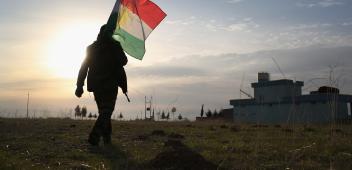Al-Qaeda, tribes and instability in Yemen
In this Lowy Institute Analysis, Sarah Phillips and Rodger Shanahan discuss the re-emergence of a significant al-Qaeda presence in Yemen. The authors focus on al-Qaeda’s efforts to build relations with local Yemeni tribes, something that will be central to the movement’s prospects of cementing a long-term presence in the country.

- Overt Western involvement in targeting AQAP’s leadership risks fuelling the anti-Western sentiment amongst the tribes that would be far more likely to strengthen, rather than weaken, their support for AQAP.
- Tackling al-Qaeda in Yemen also involves tackling the deeper causes of disaffection within Yemeni society.
- Defeating AQAP in Yemen will be a difficult task, but the consequences of not addressing the situation will be felt internationally in the future.
Executive Summary
Yemen has been at the centre of increasing concern about the re-emergence of a significant al-Qaeda presence on the Arabian Peninsula. In a country where the government is already facing security threats from a Zaydi Shi’a rebellion in the north and simmering secessionist unrest in the south, al-Qaeda in the Arabian Peninsula (AQAP) is finding a fertile environment in which to establish a base of operations to continue the radical jihadist fight. Central to AQAP’s ability to cement a long-term presence in Yemen will be its relationship with Yemen's tribes. But long-term relations with tribes are fraught with difficulty. Western policy should focus on degrading AQAP’s leadership and breaking this developing tribal nexus in a timely fashion without becoming too overtly involved.



